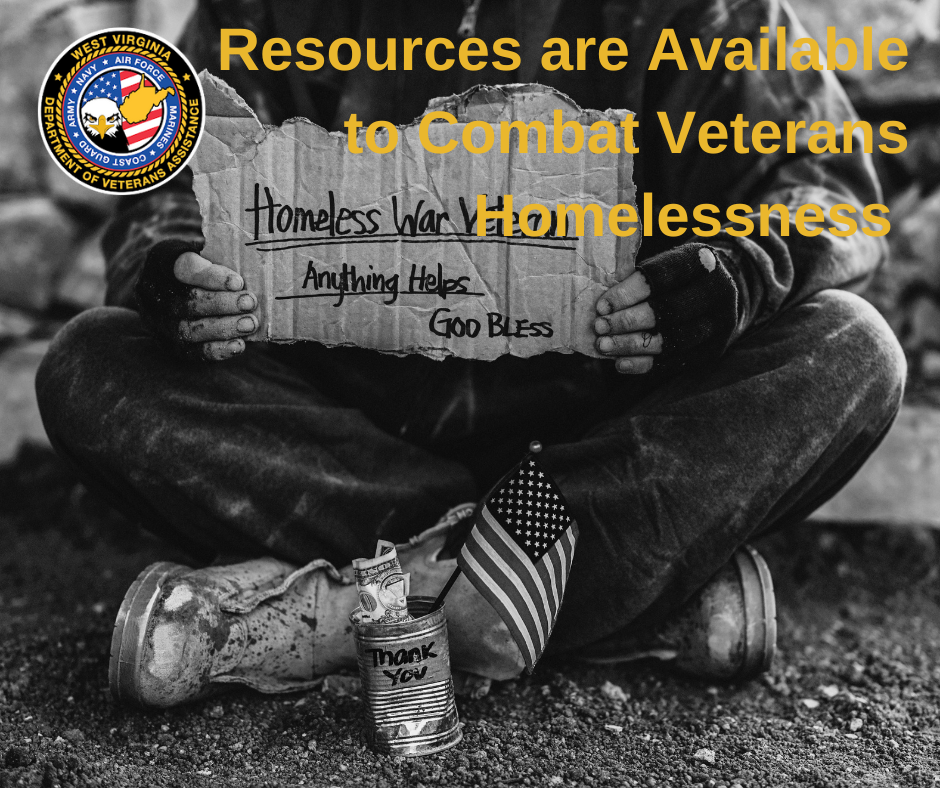

Our Veterans have sacrificed for our country, our safety, and our freedoms. So it is vital that when they return home, resources are available to support the transition to civilian life, and through the years. One problem facing a segment of our veteran population is homelessness. According to data at the federal Department of Housing and Urban Development (HUD), homelessness among veterans has decreased nationwide by a significant amount since 2011. However, there are still Veterans who are experiencing homelessness. Shelters and food banks throughout the state have seen increased use, meaning there may be higher levels of homelessness and food insecurity this winter than last. With the prices of nearly everything much higher this year than last, including rent, food, and energy – many more veterans may be at risk of homelessness this year.
Federal Resources
There are programs available to help including the federal Department of Veterans Affairs (VA) Center for Homeless Veterans.This organization collaborates with federal, state, and local agencies, as well as non-governmental organizations to help expand employment and affordable housing options for veterans exiting homelessness. They can be reached at 877-424-3838.
The HUD-VA Supportive Housing (HUD-VASH) Program can assist veterans and their families who are homeless find and sustain permanent housing. This resource also can provide rental assistance vouchers for privately owned housing to veterans experiencing homelessness. VA case managers provide veterans with supportive care such as health care, mental health treatment and substance use counseling to help them maintain their housing. In West Virginia, 571 of the state’s 645 vouchers have been fulfilled.
Additionally, the VA’s Supportive Services to Veteran Families (SSVF) Program provides case management and supportive service for low-income veteran families who are at risk of losing their home, or to find a new, more suitable housing situation.
State Resources
Within the state, the West Virginia Veterans Home in Barboursville serves as a convenient and comfortable home in time of need for veterans who were discharged under honorable conditions. The West Virginia Veterans Home provides a nursing department that is staffed at all hours to provide for the health and wellbeing of residents. Among the services provided are first aid, preventive care and assistance with medications. Facility staff provide regular transportation to the nearby Veterans Affairs Medical Center, through which all advanced medical care is provided. The facility has 125 beds and rooms can occupy two, three or four individuals.
The West Virginia Weatherization Assistance Program, through West Virginia Community Advancement and Development (WV CAD) is a federally funded program that helps low-income households in West Virginia reduce the costs incurred due to energy-related utilities. In 2022, Gov. Jim Justice announced $3.3 million in weatherization assistance program grant funding. The program gives priority to providing assistance to the elderly or persons with disabilities and households with children. The program operates the Energy Crisis Intervention Program (ECIP), which provides emergency heat repair and replacement and works with utility companies throughout the state to provide services to reduce energy burden. Typical measures include installing insulation in walls, floors, and attics; reducing air infiltration and pressure imbalances; sealing and repairing ducts; and tuning and repairing heating and cooling units. Crews use DOE funds to install only those energy-efficiency measures that meet a Savings-to-Investment Ratio of 1:1 and above. A limited amount of DOE funds may be used to address energy-related health and safety problems, or to perform incidental repairs.
The West Virginia Low Income Energy Assistance Program (LIEAP) through the West Virginia Department of Health and Human Resources, helps eligible households with the cost of home heating through direct cash payments or payments to utility companies on their behalf. A crisis component is available for households without resources facing the loss of a heating source. Eligibility for both program components is based on a combination of factors, including income, type of heating payment, and total heating costs. Assistance is only available through the winter months, although the application period usually runs through March. The Division of Family Assistance operates LIEAP in each of the DHHR field offices for a short time each winter. Once the regular eligibility period closes, the program remains open for emergency applications.
The West Virginia Department of Veterans Assistance provides a variety of resources to veterans, learn more about accessing these resources by connecting with a local office.
You can find more resources for Veteran Caregivers, individuals with PTSD, and suicide prevention, among others by checking out our blog.

